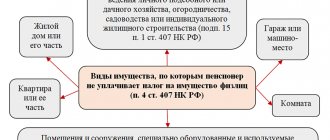All car owners are required to pay taxes. Regardless of how good the car is, whether it is used for its intended purpose, how old the car is and what its power is. In addition, car owners who have an “iron horse” worth more than 3 million rubles also pay an additional luxury tax.
All motorists receive payments from the Federal Tax Service in the summer and are required to pay it before December 1 of the next year.
There have been talks about the abolition of transport tax, or at least its differentiation, for a long time. After all, the driver who uses the car every day and the one who drives once a month will pay the same transport tax. To overcome such injustice, deputies of the State Duma proposed to abolish the transport tax and instead increase the excise tax on fuel. So that the costs of the car correspond to its use.
In this article:
Debts for non-payment of transport tax have been written off
According to Law No. 436-FZ, which Putin signed on December 28, 2021, debts for transport tax will be written off. However, in this case, debts that were formed before January 1, 2015 are subject to write-off. They will also write off a penalty. There is no additional need to submit any documents; tax officials will write off the debts on their own.
In 2021, changes came into force, according to which a list of persons appeared who will be exempt from paying transport tax.
Federal law exempts vehicles that are wanted in connection with theft (theft) from vehicle taxation. The exemption is valid from the month the search for the car began until the month it was returned to the owner.
Facts of theft (theft), return of a vehicle are confirmed by a document issued by an authorized body, or information received by tax authorities from the Ministry of Internal Affairs. As a result, the end of the search for a vehicle that has not led to its return to the person to whom such a vehicle was registered will not entail the resumption of taxation.
Who pays part of the transport tax?
The tax also does not need to be paid to owners of heavy trucks (vehicles weighing over 12 tons) who make payments in the Platon system. However, in this case, the tax is not paid if the amount of fees under Plato exceeds or is equal to the accrued toll. If the transport tax turns out to be higher, then the amount of Plato payments is deducted from it.
Who else is included in the category of beneficiaries of the road maintenance fee is decided by local authorities. So, in some regions, road tax is not collected from group 3 disabled people, reduced tax rates exist for old-age pensioners (in some places, older motorists are completely exempt from paying vehicle tax, in others they pay 50%, and so on). You can find out who is entitled to discounts, as well as what needs to be submitted in order to receive them, at the territorial tax authorities.
Regional benefits
In Moscow, as in a number of regions and cities, there are benefits for certain categories of the population. Thus, disabled people of groups 1 and 2 are exempt from paying transport tax for one vehicle. In addition, one of the parents of a disabled child can count on such a benefit.
In families with three or more children, a transport tax benefit is usually provided to one of the parents and only one vehicle at a time. The benefit can be used until children reach the age of majority.
Participants in combat operations are exempt from transport taxation:
- WWII participants (including disabled people);
- participants in military conflicts (Afghanistan, Chechnya, Syria, etc.).
The benefit is available only to combat veterans whose status is officially confirmed by the appropriate certificate.
More on AutoLex.Net:
What amount is tax-free when selling a car in 2019?
Those affected by radiation at the Chernobyl nuclear power plant, the Semipalatinsk test site and other nuclear facilities are exempt from transport taxes. Tax exemption is provided only for one vehicle at the choice of the beneficiary, confirmed by a written application.
Residents of Russia who have the status of Honorary Citizen of the Russian Federation also have transport benefits.
The category of Honored Citizens of the Russian Federation includes:
- Heroes of Russia and the USSR;
- holders of the Order of Glory of three degrees;
- awarded the Order of Labor Glory;
- Heroes of socialist labor.
About the amounts and terms of payments in 2018-2019
In 2021, the territorial differentiation of transport tax is planned to be abolished, and payments for residents of all regions will become equal.
The final tax amount is directly dependent on the resolution issued by the local administration. For example, the amount of tax on a car with a 100-horsepower engine for car owners registered in different regions of the Russian Federation will be calculated by the following indicators:
- Muscovites and St. Petersburg residents will have to pay from 12 to 24 rubles. for 1 hp, but in the surrounding areas the tax situation is better - 10 and 18 rubles. respectively;
- The authorities of the Tomsk region established a tax of 6.5 rubles. for each “horse”;
- car owners representing the Kursk region, Tatarstan and Bashkortostan, as well as Sakhalin, Perm and Vologda residents pay 25 rubles. per unit of engine power;
- The authorities of the Kaliningrad, Arkhangelsk, Astrakhan and Kaluga regions set a fee of 14 rubles. for 1 hp;
- Nizhny Novgorod administration - in the amount of 13.5 rubles;
- the authorities of the Jewish Autonomy and Udmurtia charge 8 rubles. for 1 hp;
- in the Amur region - 15 rubles;
- in the Krasnodar Territory, one horsepower is estimated at 12 rubles;
- Residents of Chuvashia and Samara must transfer 16 rubles each. for 1 hp;
- The Dagestan authorities established a fee of 8 rubles;
- in the Chechen Republic, Omsk Region and Stavropol Territory, a tax of 7 rubles is levied;
- in the Kaliningrad region the rate is very lenient - only 2.5 rubles. for 1 hp;
- The luckiest of all were the Rommians who registered their cars in the Sverdlovsk region - here there are cars up to 100 hp. are not subject to transport tax.
Benefits for organizations in Moscow
Transport benefits are also provided to a number of organizations that carry out socially significant activities.
The category of beneficiaries includes:
- organizations engaged in the transportation of passengers on urban and suburban routes, with the exception of taxis;
- residents of special economic zones;
- public organizations of disabled people;
- enterprises employing disabled people;
- educational institutions, including additional ones.
Individuals registered as individual entrepreneurs are also entitled to enjoy benefits in connection with a socially significant area of activity.
Tax incentives for transport tax: where to look for the list
Transport tax (TN) is a regional tax, therefore the Tax Code of the Russian Federation sets only the general framework of taxation. The specifics of payment can be established by the authorities of a constituent entity of the Russian Federation by their laws. In particular, they have the right to introduce tax benefits for transport tax and determine the grounds for their use by taxpayers - this is directly stated in Art. 356 Tax Code of the Russian Federation.
Therefore, in order to find out who has transport tax benefits, you need to refer to the law of the relevant region, which is easy to find on the Internet. But first, it’s worth establishing whether the vehicle is subject to TN taxation.
Who is exempt from paying transport tax under the Tax Code of the Russian Federation?
According to paragraph 1 of Art. 358 of the Tax Code of the Russian Federation, the objects of TN taxation are cars, motorcycles, scooters, buses and other self-propelled machines and mechanisms on pneumatic and caterpillar tracks, as well as airplanes, helicopters, motor ships, yachts, sailing ships, boats, snowmobiles, motor sleighs, motor boats, jet skis , non-self-propelled (towed) and other water and air vehicles registered in the prescribed manner.
In paragraph 2 of Art. 358 of the Tax Code of the Russian Federation provides a list of vehicles that are not subject to taxation. Accordingly, their owners have the right to be exempt from transport tax. Among such objects:
- rowing boats and motor boats with engines up to 5 horsepower (excluded from preferential objects from 01/01/2020);
- passenger cars specially equipped for use by disabled people, as well as with an engine power of up to 100 horsepower (73.55 kW), received (purchased) through social security authorities;
- passenger and cargo sea, river and aircraft owned by carriers;
- tractors, self-propelled combines of all brands, special vehicles of agricultural producers;
- vehicles that are wanted, as well as vehicles for which the search has been terminated, from the month the search began until the month of its return to the person in whose name it was registered. Facts of theft (theft), return of a vehicle are confirmed by a document issued by an authorized body, or information received by tax authorities in accordance with Art. 85 Tax Code of the Russian Federation.
More on AutoLex.Net:
How to pay transport tax without a receipt in April 2021, if it suddenly did not arrive
From 07/03/2016 to 12/31/2018, there was an additional benefit that allowed the tax accrued on heavy trucks to be reduced down to zero by the amount of the fee paid to the budget for the damage caused by such transport to roads. It applied to both individuals (Article 361.1 of the Tax Code of the Russian Federation) and legal entities (clause 2 of Article 362 of the Tax Code of the Russian Federation).
Transport tax in Moscow in 2021
Transport tax is paid by individuals after receiving a notification from the tax service. The tax calculation is specified in this notice taking into account the norms of federal and regional legislation. But the tax service does not automatically include benefits for large families; such transport tax benefits must be applied for independently.
The main document submitted by the applicant (one of the parents) is an application in which you indicate the basis for receiving a transport benefit, namely: details of the certificate of a large family, and data on your taxable vehicle.
The following documents must be submitted along with the application for transport tax relief in 2021:
- applicant's passport - original;
- original certificate of a large family;
- Birth certificates of all minor children in the family are originals.
When submitting an application not personally, but through a representative, he must have a valid power of attorney to submit the application.
The benefit is valid as long as there is a legal reason for it, that is, it ceases after the grounds for the status of a large family cease to exist, that is, when the eldest child begins an independent life. In this case, the application for car tax relief is submitted once.
The second reason for terminating the benefit is the cessation of accrual of the transport tax itself in connection with the sale of a car, for example.
A large family is a family raising three or more minor children. They can be either native or adopted - biological relationship does not play a role in this case. As soon as the youngest turns 16 years old, the parents lose their preferential status. An exception is the child’s continued education at school: in such a situation, the preferential status continues to apply, but until he receives a certificate or reaches 18 years of age.
The status of a large family is confirmed by a certificate issued by Social Security. It can also be issued through the MFC.
The document is not issued to parents if their children:
- Are in the family under a guardianship agreement: guardianship does not give the right to privileges, guardians are not equal to parents from a legal point of view;
- Transferred to state or municipal organizations for security;
- They are brought up on the basis of a foster family agreement.
Also, preferential status is not granted to citizens deprived or limited in parental rights.
Previously, large families were exempt from paying transport tax only on cars with a capacity of up to 250 hp. Now these restrictions have been lifted. Currently, privileges are granted to one of the parents to whom the vehicle is registered, without any restrictions.
You will not have to pay tax for the following types of transport:
- Passenger cars, motorcycles;
- Scooters, trucks, buses.
The benefit does not apply to water, air transport, motor sleds and snowmobiles - you will have to pay tax for them. It also does not apply to luxury cars, when calculating taxes for which a multiplying factor is applied in accordance with Art. 362 Tax Code of the Russian Federation.
What rates apply for transport subject to taxation:
| Snowmobiles | |
| up to 50 hp | 25 |
| from 50 hp | 50 |
| Aircraft | |
| Airplanes with jet engines | 200 |
| Airplanes and helicopters with engines | 200 |
| Other aircraft without engines | 2000 |
| Boats and motor boats | |
| Up to 100 hp | 200 |
| From 100 hp | 400 |
| Jet skis | |
| Up to 100 hp | 250 |
| Over 100 hp | 500 |
| Non-propelled vessels | 200 |
Note! The above rates are in rubles per 1 hp.
Let's look at a practical example of how the tax will be calculated in this case:
A large family has a 12 hp snowmobile. The benefit does not apply to this type of transport, so the parent for whom it is registered must pay the following amount:
12 x 25 = 300 rub.
If the snowmobile's power exceeded 50 hp, the tax amount would be different:
51 x 50 = 2,550 rub.
In addition to large families, the following categories of individuals and legal entities are exempt from paying transport tax in Moscow:
- Organizations engaged in urban passenger transportation, except taxis;
- Heroes of the USSR, Russian Federation, as well as persons awarded the Order of Glory;
- Veterans of the Great Patriotic War, military operations;
- Disabled people of groups 1 and 2;
- One of the child's guardians or guardians;
- Owners of cars with power up to 70 hp;
- Participants in the liquidation of the Chernobyl accident;
- Guardians of disabled people since childhood;
- Companies that are residents of special economic zones.
It is important to consider that if there are two grounds for exemption from transport tax, only one of them can be used. For example, if a parent with many children is disabled, you need to apply for a benefit either on a certificate of having many children or on a certificate of disability.
- The tax period for transport tax is 2021.
- Payment deadline for legal entities (organizations)
. Tax - April 15, the year following the tax period. Advance tax payments - April 30, July 31, October 31 of the current tax period. - The payment deadline for individuals (citizens and individual entrepreneurs)
is until 12/01/2021.
Who may not pay tax in the capital is also specified in city law No. 33. These are beneficiaries, certain categories of individuals and legal entities.
Transport tax benefits for pensioners in Moscow in 2020-2021 are established for the following persons:
- for legal entities on buses used to transport passengers;
- heroes of the USSR, Russian Federation, awarded the Order of Glory;
- WWII and military veterans;
- Transport tax benefits for disabled people are provided only for groups 1 and 2. The benefit is also provided to one of the parents of a disabled child;
- former juvenile prisoners;
- owners of one vehicle with an engine power of up to 79 hp;
- one of the parents in a large family.
There are benefits for some other persons (for those who have suffered radiation sickness, for vehicles with only an electric motor, etc.), but there are no separate benefits for pensioners. The benefit is established for one vehicle.
As mentioned above, citizens with disabilities, after drawing up a compulsory motor liability insurance agreement, can return 50% of the paid price through the social protection fund. Of course, for this category of citizens it would be easier to immediately pay ½ of the insurance policy, but this right is not provided for by the insurance rules. As for pensioners, no additional benefits have yet been provided for this category of citizens.
The family does not pay tax on cars with an engine power of up to 150 hp, and on motorcycles with an engine power of up to 36 hp. and motor boats with engine power up to 30 hp. (inclusive). To receive the benefit, you must provide the tax office with a copy of the ID of a large family, certified by the social security authority. Such a copy must be provided annually and no later than one month after the end of the tax period.
- provision of land free of charge;
- compensation for half the cost of housing and communal services from the regional budget (based on each family member registered in the residential premises);
- free travel on public transport, including the metro, if you have a social card (can be used by one school-age child or one of the parents if there is a preschool-age child in the family);
- allowance for university students, if they are receiving education for the first time in the region, in the amount of 4,000 rubles per month throughout the entire period of study;
- reimbursement of the cost of sanatorium-resort treatment for children;
- receiving benefits when paying transport tax.
We recommend reading: The list of people who received apartments in 2020
The amount of one-time payments at the birth of the third and subsequent children in the Moscow region is 60 thousand rubles. If twins are born in a family, the authorities will allocate 70 thousand rubles for each baby, and if triplets and more children are born at the same time, the amount increases to 300 thousand for all.
Federal benefits for large families are what all citizens of the Russian Federation receive. There are also regional benefits (for example, here
), but it is better to check them at the place of residence with the social protection authorities.
The list of benefits is determined by Decree of the President of the Russian Federation of May 5, 1992 No. 431 “On measures for social support of large families.” If you were not given something, feel free to use the facts from the law. So, all subsidies, discounts and promotions can be divided into several types by industry: social, labor, tax, mortgage and utilities. We will look at each section below by heading.
Benefits for paying transport tax (exemption from payment) in Moscow
Let's look at the list of beneficiaries using the example of the Moscow law on transport tax. In the capital, the procedure for paying transport tax is regulated by the Moscow Law “On Transport Tax” dated 07/09/2008 No. 33. Art. 4 of this law.
According to this article in Moscow, the following are entitled to transport tax benefits in 2019-2020:
- Organizations providing services for the transportation of passengers by public urban passenger transport - for vehicles carrying passengers (except taxis).
- Residents of the special economic zone of technology-innovation type "Zelenograd" - by vehicles registered on them from the moment of inclusion in the register of residents of the special economic zone.
- Heroes of the Soviet Union, Heroes of the Russian Federation, citizens awarded the Order of Glory of three degrees.
- Veterans and disabled people of the Second World War.
- Veterans and disabled combatants.
- Disabled people of groups I and II.
- Former minor prisoners of concentration camps, ghettos, and other places of forced detention created by the Nazis and their allies during the Second World War.
- One of the parents (adoptive parents), guardian, trustee of a disabled child.
- Persons who own passenger cars with an engine power of up to 70 horsepower (51.49 kW) inclusive - for one vehicle registered to them.
- One of the parents (adoptive parents) in a large family.
- Individuals entitled to receive social support in accordance with the Law of the Russian Federation “On the social protection of citizens exposed to radiation due to the disaster at the Chernobyl nuclear power plant” dated May 15, 1991 No. 1244-1, federal laws “On the social protection of citizens of the Russian Federation exposed to radiation due to the accident in 1957 at the Mayak production association and the discharge of radioactive waste into the Techa River" dated November 26, 1998 No. 175-FZ and "On social guarantees for citizens exposed to radiation as a result of nuclear tests at the Semipalatinsk test site" dated January 10, 2002 No. 2-FZ.
- Individuals who, as part of special risk units, took direct part in testing nuclear and thermonuclear weapons, eliminating accidents of nuclear installations at weapons and military facilities.
- Individuals who received or suffered radiation sickness or became disabled as a result of tests, exercises and other work related to any types of nuclear installations, including nuclear weapons and space technology.
- One of the guardians of a disabled person since childhood, recognized by the court as incompetent.
- Organizations recognized as SEZ management companies and carrying out activities for the purpose of implementing SEZ management agreements - in relation to vehicles registered to these organizations, from the moment of conclusion of agreements on the management of special economic zones with the federal executive body authorized by the Government of the Russian Federation. The benefit is provided for a period of 10 years, starting from the month of registration of the vehicle.
- Management companies of the International Medical Cluster and project participants who have entered into agreements on the implementation of the project with the management company of the International Medical Cluster and carry out project implementation activities on the territory of the International Medical Cluster (from 01/01/2018 to 12/31/2027 - Article 4 of Law No. 33 as amended by the law Moscow on amendments to certain laws of Moscow in the field of taxation dated November 29, 2017 No. 45).
- From 01.01.2020 to 31.12.2024 - persons who own vehicles equipped exclusively with electric motors.
More on AutoLex.Net:
Application for transport tax benefits: how to write, sample for 2021
Individuals are provided with benefits only for one vehicle registered to them. It should be remembered that benefits do not apply to cars with an engine power of more than 200 hp. With. This rule does not apply only to parents of a large family.
Exemption from transport tax
The following categories of citizens in Moscow may not pay state duty:
- passenger carriers;
- residents of SEZ TVT “Zelenograd”;
- owners of passenger cars with power up to 70 hp;
- children with many children;
- disabled people and combat veterans;
- disabled people of groups 1 and 2;
- guardians of incapacitated disabled people;
- citizens participating in the liquidation of nuclear accidents.
2. in St. Petersburg:
- heroes of labor, Soviet Union, Russian Federation;
- Knights of the Order of Glory;
- veterans and disabled combat veterans;
- disabled people of groups 1 and 2, parents of disabled children;
- pensioners;
- widows of fallen servicemen;
- parents with many children.
Every person can find out who is not obliged to pay a duty in a certain region, region, or city by studying the car tax law of a certain region. It contains information about tax rates, the amount of benefits, the period and procedure for paying the duty.
Where to find a sample application for transport tax relief
Anyone who is exempt from transport tax must declare this to the Federal Tax Service and confirm their right to exemption (reduction) of tax.
The application form for transport tax benefits for individuals was approved by order of the Federal Tax Service of Russia dated November 14, 2017 No. ММВ-7-21/ [email protected]
You can see it on our website.
In your application you can choose:
- submit documents confirming your right to benefits;
- or just provide the details of such documents.
In the latter case, the tax authorities themselves will send the request to the place where the supporting documents specified by the taxpayer were issued, and then inform the applicant about the decision to provide the benefit.
You can apply for a property tax benefit to any tax authority, as well as through the taxpayer’s personal account.
Starting from 2021, legal entity payers also submit applications for benefits to the Federal Tax Service (Federal Tax Service order No. ММВ-7-21 dated July 25, 2019/ [email protected] ). You can download the application form from the link. For periods before 2021, the benefit is reflected in the declaration.








